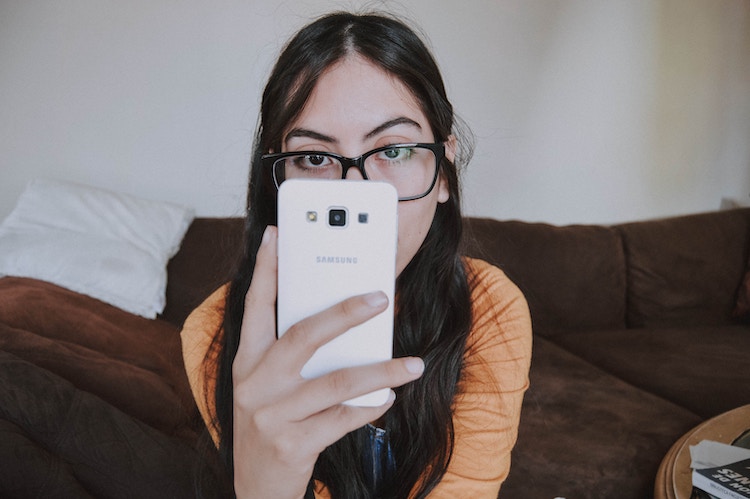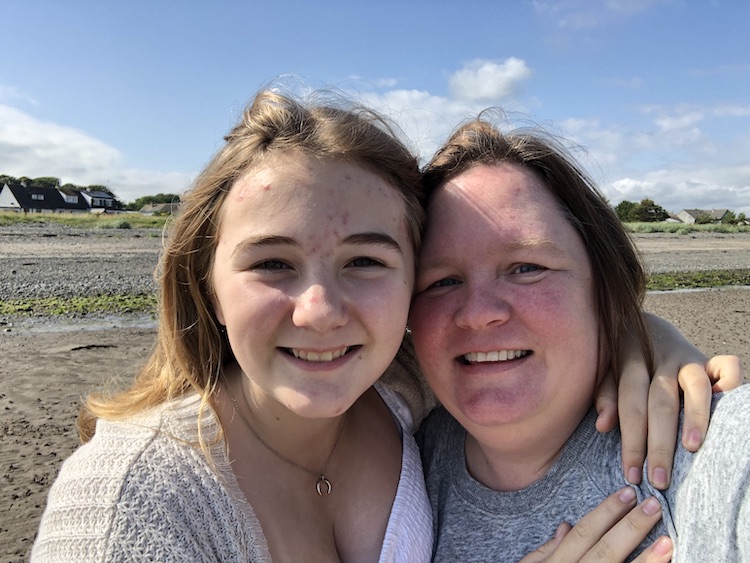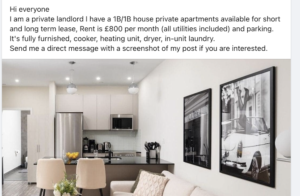 As someone who works in and around social media, people are surprised that I don’t monitor my teen’s Internet use more carefully.
As someone who works in and around social media, people are surprised that I don’t monitor my teen’s Internet use more carefully.
After all, technology exists to pretty much track everything our children can do online:
We can monitor their location in real-time using apps like Life360, or the “Find my Friends” feature on iPhone.
We can filter their Internet content, using a range of parental control apps.
We can dictate their Screen Time, setting limits of 30 minutes for activities we don’t think of as being productive.
A growing number of parents use technology to snoop (or “monitor” if we’re being more kind) their children’s digital lives. And to begin with, I was definitely one of them.
When Flea first got a phone, I was all about synching her phone to mine, so I could see every message, every web page, every download. I looked at web filtering software, keystroke logging, covert location monitoring.
I certainly wasn’t the only one.
How Widespread is Parental Monitoring?
According to recent research by Pew Internet, 61% of parents surveyed said they checked their child’s browser history. Almost half (48%) have looked through calls and texts and the same number said they know their child’s email password.
Slightly fewer – 39% – have added parental control software or apps to monitor activity, while 16% use apps such as Life360, which monitors a child’s location in real-time.
Which tells me that probably lots of people are like me and think I probably should monitor my teen’s internet use, but they’re not sure how to do it, or how far to go.
What I Realised about Monitoring my Child’s Device
Over time, I wondered about the impact and effectiveness of monitoring my child’s device.
I think that installing too many controls potentially hurts your relationship with your child.
When you block too much, kids are going to get creative. They’re going to find loopholes (click here to read my post on ways kids get around parental controls). They’re certainly not telling you about those loopholes.
So instead of trust, and communication, you have secrecy and silence. That doesn’t seem healthy to me.
Kids who feel they’re monitored too closely get stressed and feel they aren’t being given privacy. One study of 500 teens reported that adolescents who felt their privacy was breached were more likely to keep secrets and less likely to disclose problems, up to a year later. Generally, kids forgive some monitoring, but when it feels excessive or (worse) covert, that became a big problem.
Basically, installing overly restrictive or snooping apps will NOT help you grow closer to your children. That’s true even if we’re just trying to keep them safe.

It’s about Balance
What I’ve decided about monitoring in our household is that it’s about balance.
That means I don’t need to know every word Flea types.
It’s about raising a child who trusts me enough to share that inappropriate photo she got, or the message from that 5th year accusing Flea of flirting with her boyfriend.
Putting up too many safety barriers stops Flea from making mistakes – and learning from them. It also creates a child who feels fearful and anxious about the Internet.
I want Flea to know that the Internet has problems, but there are ways to protect yourself and spot when something isn’t quite right. All these monitoring apps do is tell Flea that I don’t trust her to make decisions about her own safety.
Let’s face it, most of these apps don’t benefit teens AT ALL in the vast majority of cases. They’re all about selling peace of mind to parents like us.
How I Monitor my Teen’s Device
This doesn’t mean it’s a free for all. Far from it. At 14, these are the ways I monitor my teen’s Internet use:
- Antivirus software and a firewall on her laptop, because that’s just common sense
- Content restrictions that prevent her accessing adult content or downloading 18-rated videos, apps and games
- Find my iPhone turned on so that a) we can find her phone when she loses it and b) I can check she’s got home safely if I’m working late
- We also have time zones set on the iOS Parental Controls, so she’s not tempted to be online late at night.
Apart from that, we have some agreements. Since I pay for Flea’s phone, I’m free to glance through it. I don’t trawl through each message, but I periodically make sure accounts are set to private, the snap map is disabled, that sort of thing.
The boundaries are agreed and discussed in advance. This means Flea knows what my expectations are, and mostly if she makes decent choices, I’ll respect her privacy and trust her to use devices safely.
I trust Flea to tell me when a boy sends her a nude she never asked for, and she trusts me not to charge in and demand a meeting with the headmaster, when it’s far simpler just to block him and move on.
I think that to work, parental controls have to evolve as kids get older, because we HAVE to allow them the experience of managing risks. What we should be aiming for isn’t more monitoring, but more communication.
I’ve come to suspect that that many of these monitoring apps are selling me peace of mind at the expense of my child’s wellbeing and growth. And my concern is that they may actually backfire at a time when open, honest communication has never been more important.
What do you think?





YES! Totally with you on all of this, but I know many aren’t so suspect you’ll be splitting the vote here 🙂 Oh, and yes, I did go through that stage of wondering if I should pay for an expensive covert snooping app… trying to keep her safe from boys and herself. But at 14 I’m hoping we’re through the worst (fingers crossed) and I now think that open communication is definitely the way forward.
i dread the moment when I have to even start to think about monitoring my kids phones etc…….I wonder where we’ll be technology wise and social media wise in 5 yrs time.
I do agree can encourage rebellion within our children if we over monitor though.
I totally agree with everything in this post. It also adheres to the 11th commandment – Thou shalt exercise a bit of common sense.
Totally agree. I talk to my kids about the dangers on a regular basis and prefer to keep communication lines open. I know other kids who have been banned but they always find a way around the ban. Then because it is banned, they don’t feel they can speak to you if something inappropriate happens. They don’t know how to act on social media etc. That is far more dangerous. I have had parents tell me their kids aren’t on Facebook or social media, only for my kids to tell me they are on snapchat instead. These are also the kids whose accounts are public, who accept all followers because they want likes, and post inappropriate photos.